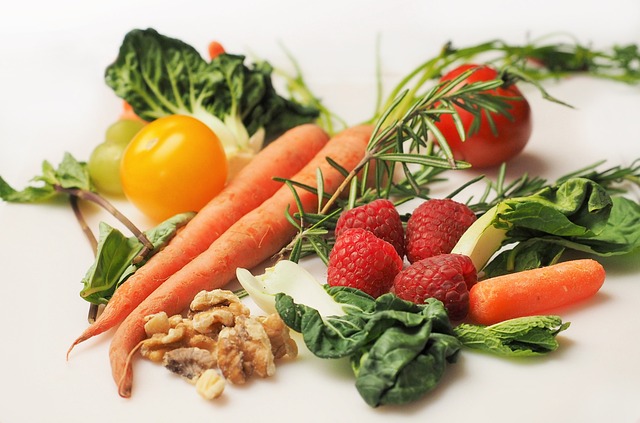Best 10 Foods for Eye Health: A Comprehensive Guide

Best 10 Foods for Eye Health: A Comprehensive Guide
Some foods are important for glowing skin and hair. Do you know that certain foods like leafy greens can support healthy eyes? We may think the eyes don’t need special care to maintain optimal function. While genetics, environment, and lifestyle choices play roles in eye health, eating a balanced diet is important to maintain healthy eyes and lower the risk of age-related eye conditions. This article explores 10 foods that can enhance and protect your eye health.
10 Foods for Healthy Eyes
Leafy Greens
Leafy greens like spinach, kale, and collard greens are rich in lutein and zeaxanthin, two powerful antioxidants that accumulate in the retina and lens of the eye. These antioxidants act as a natural sunblock by absorbing blue light, reducing the risk of cataracts and age-related macular degeneration (AMD).
Spinach and kale also contain vitamin C and beta-carotene, which support healthy vision. Add these greens to smoothies, salads, or stir-fries routinely to your meal for enough intake of these nutrients.
Carrots
Carrots are a classic eye health food, known for their high beta-carotene content, which the body converts into vitamin A. Vitamin A is crucial for maintaining a clear cornea and is a component of rhodopsin, a protein in the eyes that helps you see in low light conditions.
A deficiency in vitamin A can lead to night blindness and other vision problems. Snack on raw carrots, blend them into juices or add them to soups and stews.
Fatty Fish
Fatty fish are rich in omega-3 fatty acids, particularly DHA (docosahexaenoic acid) a structural component of the retina. Omega-3s help reduce the risk of dry eyes, prevent AMD, and combat inflammation.
Regularly consuming fatty fish has been linked to a lower risk of developing glaucoma, a condition known to cause increased pressure in the eyes. Aim to include fatty fish like, salmon, mackerel, or tuna at least twice weekly. Grilled, baked, or broiled are good preparation methods.
Eggs
Eggs are heavily packed with nutrients that are good for eye health. The yolks are high in lutein, zeaxanthin, vitamin E, and zinc. Zinc is vital for maintaining the retina’s health and may help delay the progression of AMD. The combination of lutein and zeaxanthin in eggs helps to protect against blue light from screens and UV rays, reducing the risk of cataracts.
Enjoy eggs in various ways, such as boiled, scrambled, or as part of a salad. Eating eggs with other foods high in vitamin C can enhance lutein and zeaxanthin absorption.
Citrus Fruits
Citrus fruits, particularly oranges are packed with vitamin C, a potent antioxidant that protects the eyes against oxidative damage caused by free radicals. Vitamin C is essential for the blood vessels in the eyes and can help reduce the risk of cataracts and AMD.
Start your day with a glass of orange juice, or add slices of citrus fruits to your salads and desserts.
Nuts and Seeds
Nuts and seeds are excellent sources of vitamin E, another powerful antioxidant that protects the eyes from oxidative stress. Studies have shown that vitamin E may help reduce the risk of cataracts and AMD. Walnuts are also high in omega-3 fatty acids, offering additional eyes protection.
Snack on a handful of almonds or walnuts, or sprinkle sunflower seeds over your salads or yoghurt.
Bell Peppers
Bell peppers, particularly the red and orange, are rich in vitamin C, beta-carotene, and lutein. These nutrients help reduce the risk of cataracts and AMD. Bell peppers are also high in vitamins A and E, supporting overall eye health.
Add bell peppers to your salads, stir-fries, or grill them as a side dish.
Sweet Potatoes
Sweet potatoes are a fantastic source of beta-carotene, similar to carrots, which your body converts to vitamin A. Consuming sweet potatoes helps protect the eye's surface and is essential for good night vision. They also contain a small amount of vitamin E, which protects cells from damage.
Roast or bake sweet potatoes as a side dish, or mash them for a nutritious and visually appealing addition.
Legumes
Legumes, such as beans, lentils, and chickpeas, are excellent plant-based sources of zinc, which is crucial for maintaining healthy retinas and reducing the risk of night blindness and AMD. Zinc also plays a role in helping vitamin A create melanin, a pigment that protects the eyes.
Add legumes to soups, stews, and salads, or use them as a base for veggie burgers.
Blueberries
Berries, particularly blueberries, are rich in antioxidants like vitamin C and anthocyanins. These antioxidants help reduce inflammation and oxidative stress in the eyes, lowering the risk of cataracts and glaucoma. Blueberries also improve blood circulation to the eyes.
Enjoy berries as a snack, in smoothies, or sprinkled over cereals and yoghurt.
Conclusion
Incorporating these foods into your diet can significantly impact your eye health, helping to prevent age-related diseases and maintain sharp vision. A diet rich in antioxidants, vitamins, and omega-3 fatty acids is key to keeping your eyes healthy as you age. Remember, while diet is crucial, regular eye check-ups and protecting your eyes from UV rays and blue light are also essential for maintaining optimal eye health.
